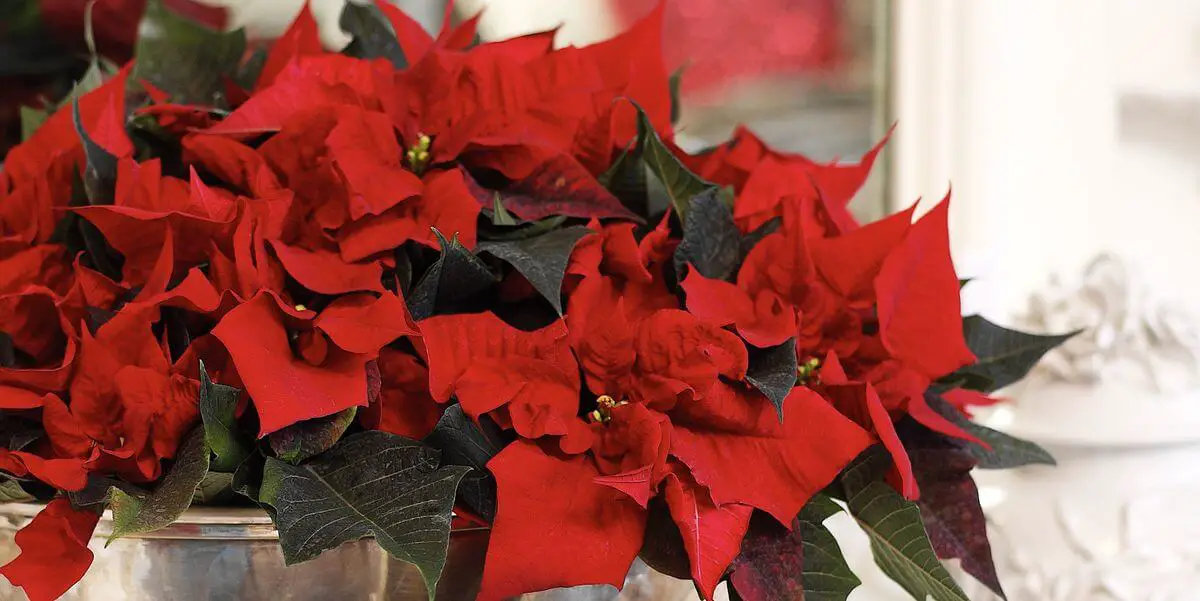The poinsettia is a popular houseplant, especially during Advent. Its green-red foliage fits perfectly into the Christmas-decorated apartment. As a cat owner, however, you should refrain from using the plant, because it poses a great danger to your house tiger.
Is Poinsettia Toxic to Cats?
- The poinsettia belongs to the milkweed family and contains a poisonous milky sap.
- The poisonous liquid leaks out of the plant when it is damaged by nibbling or scratching.
- The plant is not poisonous when consumed, but also when it comes into contact with the skin and eyes.
- Typical symptoms of poinsettia poisoning include vomiting, tremors, and salivation.
If the cat has nibbled on the poinsettia, see a veterinarian immediately.
Why is Poinsettia Poisonous to Cats?

The poinsettia (Euphorbia pulcherrima) belongs to the genus of milkweed and, like all milkweed plants, contains a white milky sap. This milk juice is highly toxic and can cause dangerous poisoning in cats if consumed. If it comes into contact with the skin or mucous membranes, the milk sap can cause severe skin irritation and eye damage in cats. The poinsettia is therefore particularly dangerous when the milky sap escapes – for example by nibbling or scratching the plant.
Symptoms of Poinsettia Poisoning
If the cat has eaten poinsettia, symptoms of poisoning will be mild or severe. These symptoms are typical of poisoning:
- Vomit
- Profuse salivation
- Tremors or convulsions
- Malaise and restless behavior
- Light-headedness, dizziness, or staggering
- Diarrhea or bloodred diarrhea
- Irritation of the mucous membranes and eyes
- Lowering body temperature
- Dilated pupils
- Damage to the liver and kidneys
Depending on the severity of the poisoning, individual symptoms can be more pronounced or less pronounced. The discomfort also manifests itself differently from cat to cat – for example through loud meowing or apathetic behavior.
Cat Has Eaten Poinsettia – What to Do?
If your cat has nibbled on the poisonous plant, take the animal to the vet immediately. Even if there are no or only slight symptoms of poisoning, you should react quickly. As long as the poinsettia leaves are still in the cat’s stomach, the vet can give the cat an emetic to avoid more severe poisoning. If the cat is not treated in time, eating poinsettia can, in the worst case, lead to serious damage or even death.
Do Without the Poinsettia!
As a cat owner, it is best to completely avoid poinsettias and other poisonous plants in your home. This is the only way to ensure that your velvet paw does not nibble on the toxic plant.

